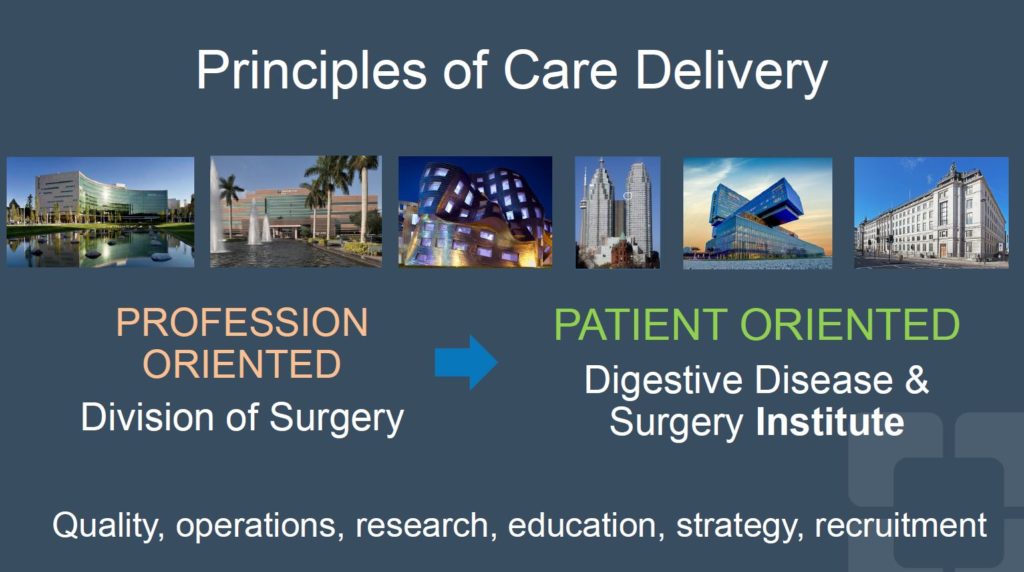With health care at a critical juncture in terms of emphasis on cost, efficiency and quality, it is more important than ever that clinicians understand the value of providing a positive care experience, according to data presented by Conor P. Delaney, MD, MCh, PhD, of the Cleveland Clinic Florida.

Dr. Delaney sat down with DDW News to talk about why effective team-based and patient-centered care are so essential, and how gastroenterologists can achieve these goals.
DDW: Why is the patient care experience so crucial?
Dr. Delaney: The cost of health care is increasing significantly. Technologies, drugs and many other things we need for health care are getting more expensive, and it’s easy just to wonder how we are going to keep looking after patients. But we know that it’s critically important that patients feel valued and supported by caregivers. This is an opportunity to improve the quality of care and experience provided to the patients we serve. And we should treat our patients and fellow caregivers like family.
DDW: What is meant by “team-based care?” What might that look like?
Dr. Delaney: At Cleveland Clinic, over the last 15 years, we’ve created specific structures around the care that we provide our patients. And ultimately, it’s been around developing teams which are specifically taught to provide empathetic care while using the best evidence-based protocols. To do that, we have brought caregivers together around disease processes. Our institute model brought surgical and medical specialists together to provide patient-focused care. So, for example, for a patient with Crohn’s disease or colon cancer, they could be seen in a combined fashion by a gastroenterologist, a surgeon, a nutritionist, an oncologist, a psychologist and anyone else who is needed.
DDW: How would a physician go about facilitating this if their hospital or office is not already on board?

DDW: What about perceived barriers, such as physicians who say that this is just too complex and difficult to implement?
Dr. Delaney: I know there are challenges, such as the pressure physicians and other hospital caregivers are under to provide care to so many patients at low cost or low levels of reimbursement. But we have found that providing team-based care has actually helped us to improve both the way we deliver care, our efficiency and most importantly our patient’s outcomes and experience.
Dr. Delaney’s SSAT Doris and John L. Cameron Guest Oration “Teamwork, patient experience and the future of health care” took place on Saturday, May 22, at 10 a.m. EDT.


